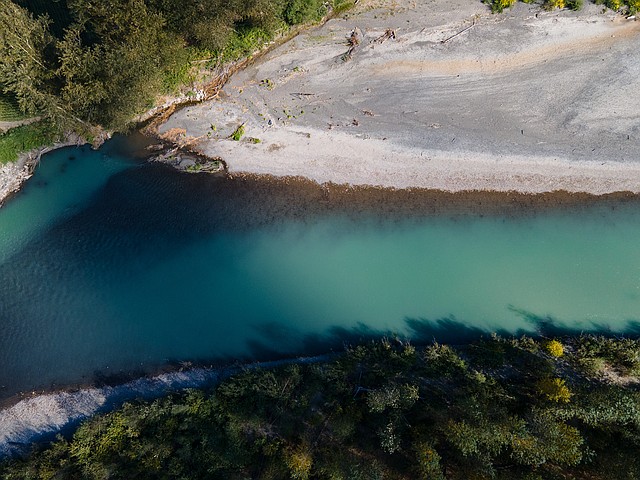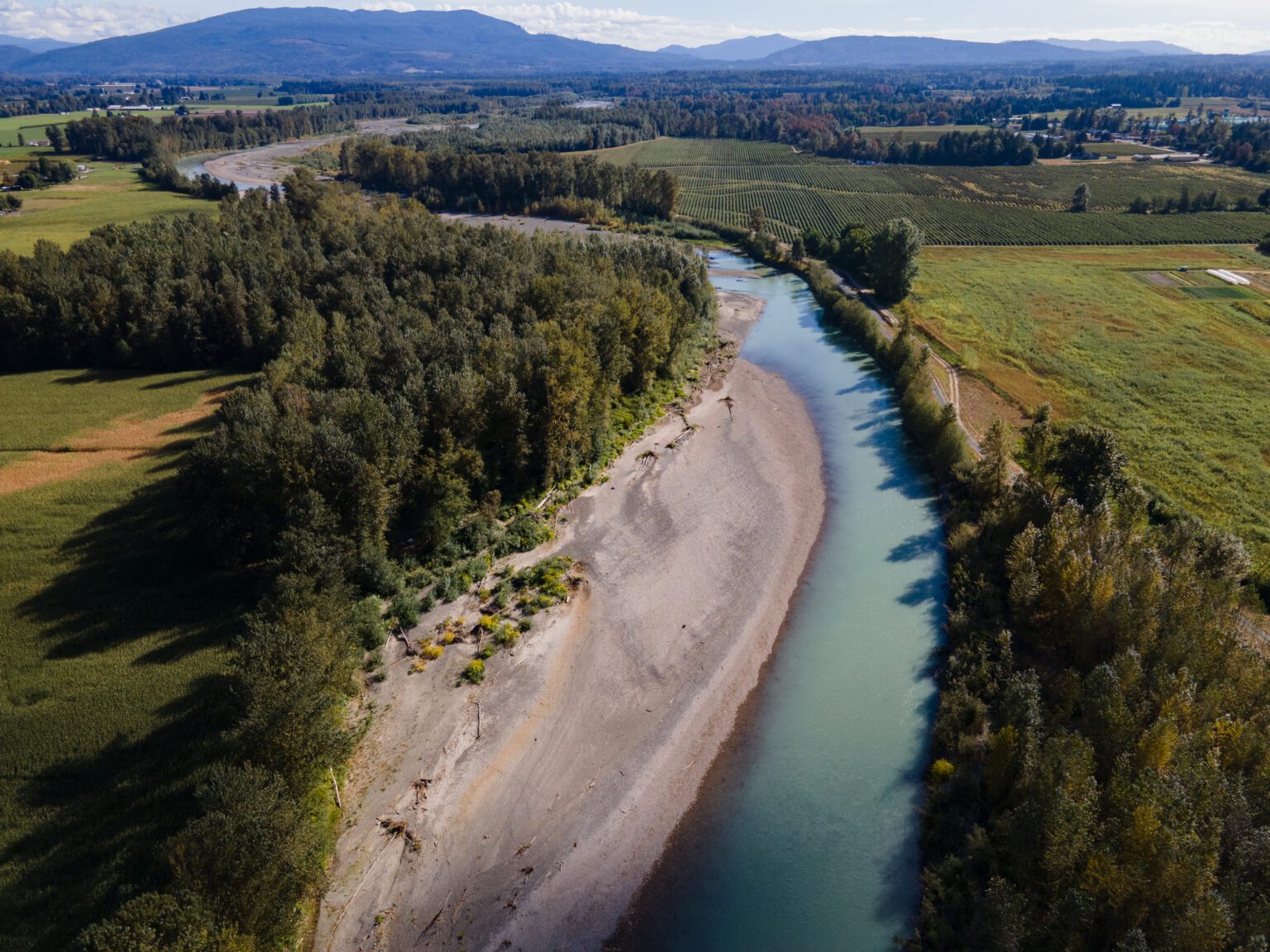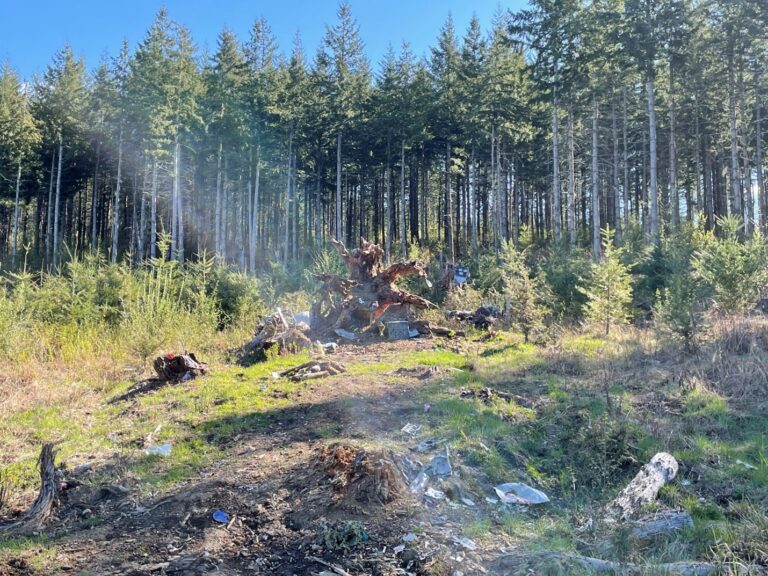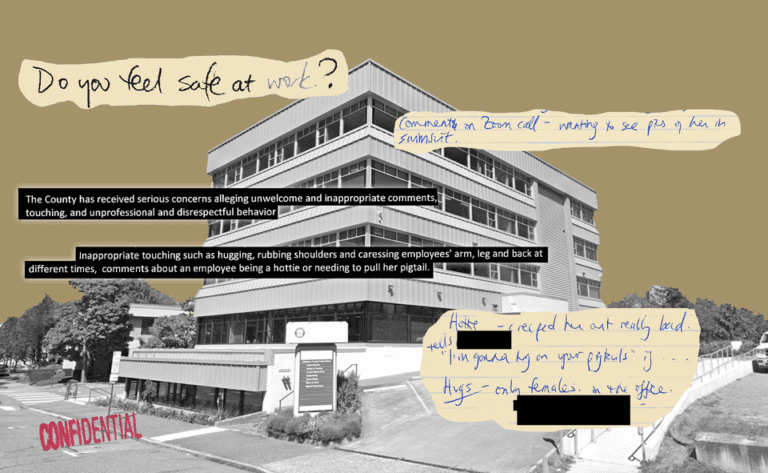As Whatcom County residents brace for the impending flood season, county officials have plans to alleviate future flood impacts in the region.
County officials have proposed a small scalping project near Everson to help control future floodwaters. The project is still in the permitting process but includes plans to remove vegetation and sediment along 150 feet of the Nooksack River.
“[This project] will essentially move vegetation and some sediment from a side channel,” said Roland Middleton, the county’s public works special programs manager. “Removal will promote [water] flow into that small side channel when the river rises.”
Middleton expects project permits to be cleared in just a few weeks and hopes to begin work on the project in early- to mid-October.
Whatcom’s Public Works Director John Hutchings said the goal of the project is to “create some more space for the river to flow when it’s at flood stage,” during a presentation to county council members last week.
“[We also hope] to relieve some of the pressure that’s been placed on that overflow corridor due to a lot of gravel moving downstream,” he said during the Sept. 13 meeting.
The Nooksack River moves more gravel and sediment than most rivers in the region — carrying more than 1.4 million tons of sediment each year, according to researchers at the U.S. Geological Survey.
 Whatcom County officials called the sediment removal project a “small pilot project,” but hope that it will serve as a roadmap for future, larger scalping projects. (Hailey Hoffman/Cascadia Daily News)
Whatcom County officials called the sediment removal project a “small pilot project,” but hope that it will serve as a roadmap for future, larger scalping projects. (Hailey Hoffman/Cascadia Daily News)
“It is tremendously laden with sediment,” Middleton said. “It carries a tremendous amount of gravel, and managing how the floodwaters flow over those [gravel bars] is what we’re talking about.”
River management is vital for controlling and mitigating the impacts of future floods, but it can be contentious in the region, particularly following November’s catastrophic flooding. Many residents have called for the county to dredge the length of the Nooksack River, with hundreds of signatures on a recent change.org petition and frequent public comments at county council meetings.
Scalping differs from dredging — the deep excavation of material from a water source — in its intensity and invasiveness. Scalping the river will remove just surface level debris, while dredging would require the county to dig deep channels through the riverbed.
Despite public support, county officials maintain that dredging is not an effective solution to the problem.
Dredging the river would require the county to remove millions of yards of sediment, carving deep into the channel of the river. The county has ruled this measure out, as officials say there is little evidence a full-scale dredging effort would greatly reduce floodwaters in the future, and efforts could significantly harm the spawning grounds and populations of endangered salmon that traverse the river.
“Where do we put all that material, when we’re looking at 3.5 million yards to make hardly any difference?” Middleton asked. “We’re talking about the removal of several feet of riverbed for several miles. That equates to millions of yards of material, and it all has to go somewhere.”
Rumors that the county planned to dredge the Nooksack flew on social media last week, though the county says it does not plan to, and has never planned to, dredge the river.
“What we’re talking about doing here is different than dredging out millions and millions of yards of material,” Middleton said in response to the rumors. “The Nooksack River has never been dredged. Sediment has been removed, but it’s not that deep type of dredging.”
Until the mid-1990s, gravel companies mined the Nooksack for sediment, which many residents saw as sediment removal and dredging efforts. Local political candidates, too, have pushed for the county to return to previous sediment removal strategies for river management.
“We have to be able to have a good conversation about sediment removal,” Tawsha Thompson, a candidate for the 42nd Legislative District, told the Cascadia Daily News. “There’s been enough sediment that has come in, and there are ways to get out without harming the fish.”
Thompson recalled growing up on a dairy farm in Whatcom County that flooded in 1989 and 1990, and remembered ongoing sediment removal at that time.
Alicia Rule, Thompson’s opponent in the 42nd District race, also grew up along the Nooksack River and remains skeptical that dredging is the answer.
“I heard [experts] say this river, had it been dredged, would have been reduced by approximately one inch of water,” Rule said. “That led me to believe that we need other solutions that would be more effective.”
The county remains steadfast that dredging will not solve the issues that led to November’s catastrophic flooding in the region, but that scalping parts of the landscape may help lessen the impact of future floods.
“There’s been a lot of community conversation around that, and it’s important that people know we’re doing something instead of nothing,” Hutchings said.
Middleton said the county will face many challenges regarding river management in the future, including costs, sediment management, and more. The challenges, he said, were “not an excuse for not getting it done.”
“The damages that people had to their property are significant,” he continued. “The disruption of their lives is significant. We had a loss of life during the floods, and that is unacceptable.”
County officials acknowledged that the upcoming 150-foot project is small, but they hope it will be a roadmap for future river management projects.
“It’s a very small pilot project,” Middleton said. “We’re hoping that it will show the resource agencies the success of this type of project so that further, larger projects can be done.”




